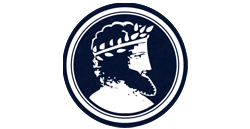Who Rules? Cui Bono? A forensic look at elites which make and share value, and those that plunder and degrade.
A Delphi Salon with the architect of a groundbreaking global study on the study of national elites.
Ironically, President Donald Trump was the first to truly raise the issue of how good our elites are.
Vigorously slaughtering “sacred cows” to the Left and to the Right, he publicly asked the question that had been simmering away ever since the vast malfeasance of the 2008 Great Financial Crisis. The deeply unexpected response of many disgusted Americans catapulted him into power.
In terms of pre-crisis trust in the establishment, we have not yet recovered, and it does not look as if we shall for a long time.
President Macron faces far-right supporters of the worst tenets of Vichy-era France as the biggest opposition party in the French parliament. In the UK, Prime Minister Johnson and Brexit have done a better job than a Russian invasion in destroying the power and prestige of British governance, as well as its economic prospects. “Political ethics” has become a contradiction in terms, and Britons are facing the worst impoverishment in many decades. The much-lauded “Mutti” Merkel is now seen as a craven enabler of Putin, as are many barons of the German Left.
What Trump started, Tomas Casas i Klett and his colleagues at the Foundation for Value Creation are set to finish. In a project of breathtaking scope and ambition, they have attempted to define and grade the quality of national elites.
The advantage of this penetrating look at the economic and political “deep fabric” of 151 nations is that it separates us from the whirlwind of daily news. Thus, while neutral observers might think the UK is slipping into “banana republic” territory, its score on the elite index is a remarkable No.8, even if that is down 5 places on the previous study. The US, previously highly placed, has slid 10 places to No.15 – a result the authors describe as a “catastrophe”, given its role as the shield and sword of the West.
Still, however embarrassing the situation in the UK and other flailing liberal-democracies, the global nature of the study reminds us that the Four Horsemen of the Apocalypse have not landed on the White Cliffs of Dover, as they tragically have in large parts of Africa and Latin America.
The index is values-based, mainly in the Western liberal mould, so it rewards competition, efficient government, tax expenditure on education and health, low crime rates and economic growth and the equitable distribution of that growth. But the study is flexible enough to give extremely high scores to countries which have achieved those goals while being quite different to the Western model. Repressive, government-heavy Singapore and China are the stand-out examples here. (Cuba also had an incredibly successful vaccine response, duly noted in the report).
Take Singapore and Switzerland which hog the top two spots. Both are economically sophisticated and dynamic, but the Swiss model of direct democracy is very different to the Singapore model. This makes the under-reported point that you can get similar outcomes with very different political models.
That alone is a vital contribution to how we think about the world, and forces us to acknowledge that Italy, for example, despite being nominally a European liberal democracy, shows some sub-index scores which push it into the Latin American category.
The UK and the US, as another example, have suicide, murder and substance abuse rates which put them within touching distance of some of the most dysfunctional nations on the planet, and very far from their supposed “rich country” peers.
What does this mean? Perhaps it continues the revolution launched by Trump, namely that we must be less complacent and less ideological about what works for raising a country’s welfare. Even as Russia’s invasion of Ukraine seems to confirm Western prejudices about Russian brutality, more sober studies demonstrate how skilfully the country has prepared economically – indeed, perhaps better than the EU.
For this event, we are fortunate to have the architect of the study, Dr. Tomas Casas i Klett himself.
Tomas has spent decades traveling around the world’s richest and poorest countries, and seen the impact of elites in succouring or, tragically, destroying the nations in their custody. Fluent in English, German, Spanish, Japanese, Chinese and some Russian, he has a historical perspective gained through 30 years of research, and the comparative perspective permitted by his immersion in so many cultures. Whether looking at Japan’s checkered history from the Bubble until today, or China’s incredible achievements since 2001, he can put the many pieces of the global puzzle together.
Anybody curious, resentful, worried or complacent about who rules us, should come to the talk to get some essential and unique perspective.
──────────
Dan Slater is inviting you to a scheduled Zoom meeting.
Join Zoom Meeting
https://us02web.zoom.us/j/82467946313
Meeting ID: 824 6794 6313
One tap mobile
+81363628317,,82467946313# Japan
+81345781488,,82467946313# Japan
Dial by your location
+81 363 628 317 Japan
+81 3 4578 1488 Japan
+81 3 4579 0432 Japan
+81 3 4579 0545 Japan
Meeting ID: 824 6794 6313
Find your local number: https://us02web.zoom.us/u/kbYQOOnb2v
──────────

